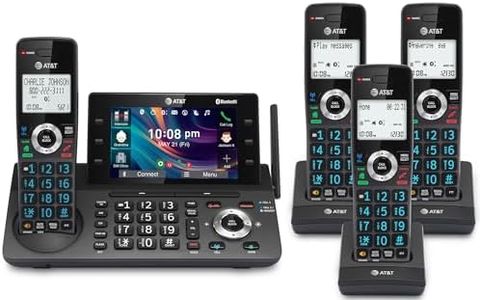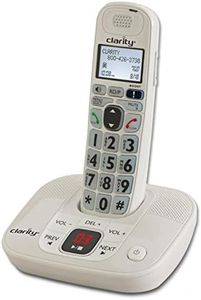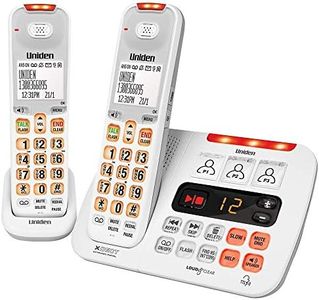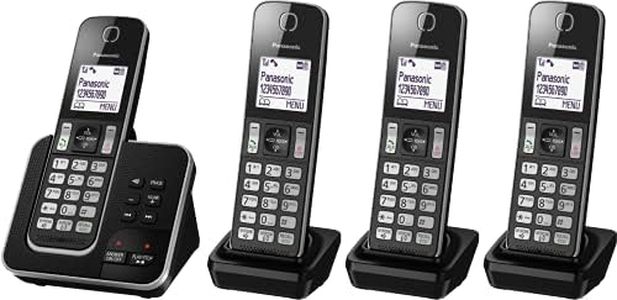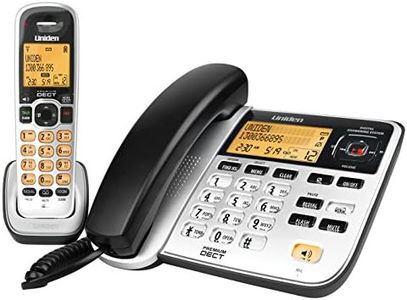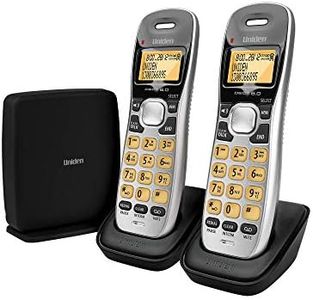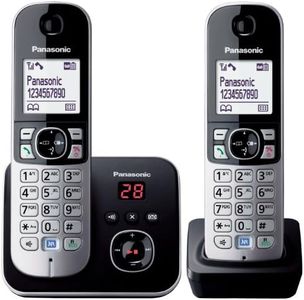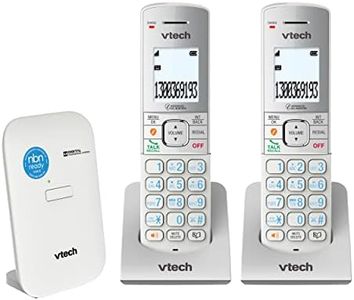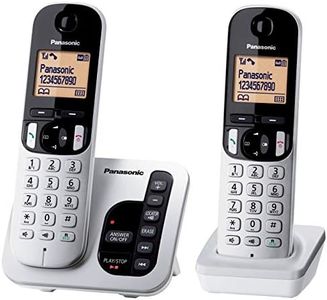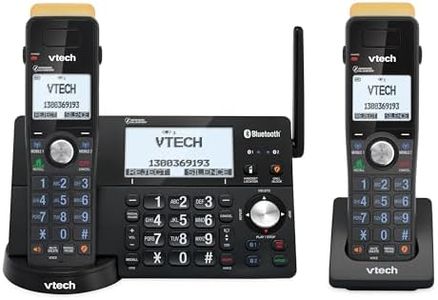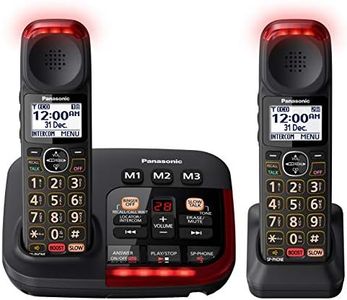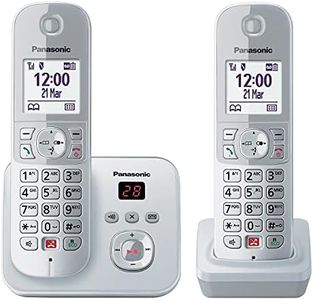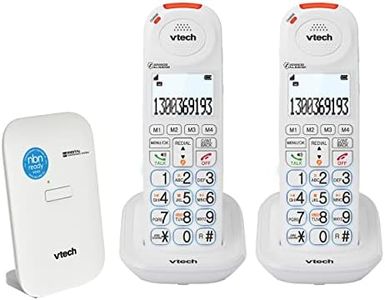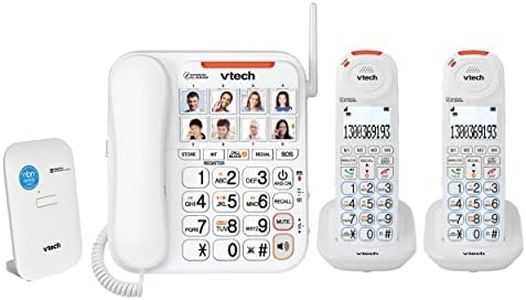We Use CookiesWe use cookies to enhance the security, performance,
functionality and for analytical and promotional activities. By continuing to browse this site you
are agreeing to our privacy policy
10 Best Cordless Phones For Seniors
From leading brands and best sellers available on the web.By clicking on a link to a third party's website, log data is shared with that third party.
Buying Guide for the Best Cordless Phones For Seniors
Choosing a cordless phone for seniors ensures easy communication at home without the hassle of cords. The right phone will be comfortable to use, simple to understand, and have features that cater to common needs such as hearing, visibility, and ease of use. When deciding, focus on what the user finds comfortable and practical rather than just the most advanced option. Features tailored to seniors can make daily life much easier and provide peace of mind for them and their loved ones.Big ButtonsBig buttons on cordless phones are important because they make dialing much easier, especially for those with visual impairments or reduced dexterity. Phones may have small, standard, or extra-large buttons. Extra-large buttons are especially helpful for seniors who need higher visibility and tactile feedback. If the senior has difficulty seeing or pressing small keys, look for models advertised as having large or oversized buttons.
Amplified SoundAmplified sound means the phone can make incoming voices louder, which is crucial for those with hearing challenges. These phones often have adjustable volume boosts, so users can set the loudness to a comfortable level. Some phones offer basic volume controls, while others provide high amplification options. If the senior struggles to hear conversations, opt for a phone that specifically mentions loud or adjustable volume amplification.
Simple User InterfaceA simple user interface means the phone is easy to operate, with straightforward menus, large text, and clear instructions. Phones can range from complex multi-function handsets to those with very basic, just-call-and-hang-up designs. Seniors who are not tech-savvy will benefit from the most minimal, intuitive interface with clearly labeled buttons and minimal extra features.
Visual Ring IndicatorA visual ring indicator is a light on the phone that flashes when there is an incoming call. This feature is helpful for people with hearing difficulties, as it ensures they don't miss calls even in noisy environments or when the ring volume is low. Some phones have small lights, while others use bright, prominent indicators. For seniors with hearing loss, choosing a phone with a highly visible ring light is ideal.
Hearing Aid CompatibilityHearing aid compatibility ensures that the phone will work without interference for people who use hearing aids. Some phones cause feedback or buzzing noises when used with hearing devices, but those marked as hearing aid compatible are designed to avoid this. This is essential if the senior wears a hearing aid.
Caller ID and Large DisplayA large, clear display with caller ID lets the user easily see who is calling and navigate any menu options. Displays range in size and clarity, so look for large, well-lit screens with high-contrast numbers and letters. Seniors with vision challenges or a need for clear information should choose phones emphasizing a big, easy-to-read display.
Speed Dial/Memory ButtonsSpeed dial or memory buttons allow users to call important contacts at the press of one button. This is much quicker and simpler than manually dialing full phone numbers, which can be challenging for some seniors. Phones may offer only a couple of memory slots or many. If the senior often calls a few key people, a phone with clear, simple speed dial buttons is a great choice.

